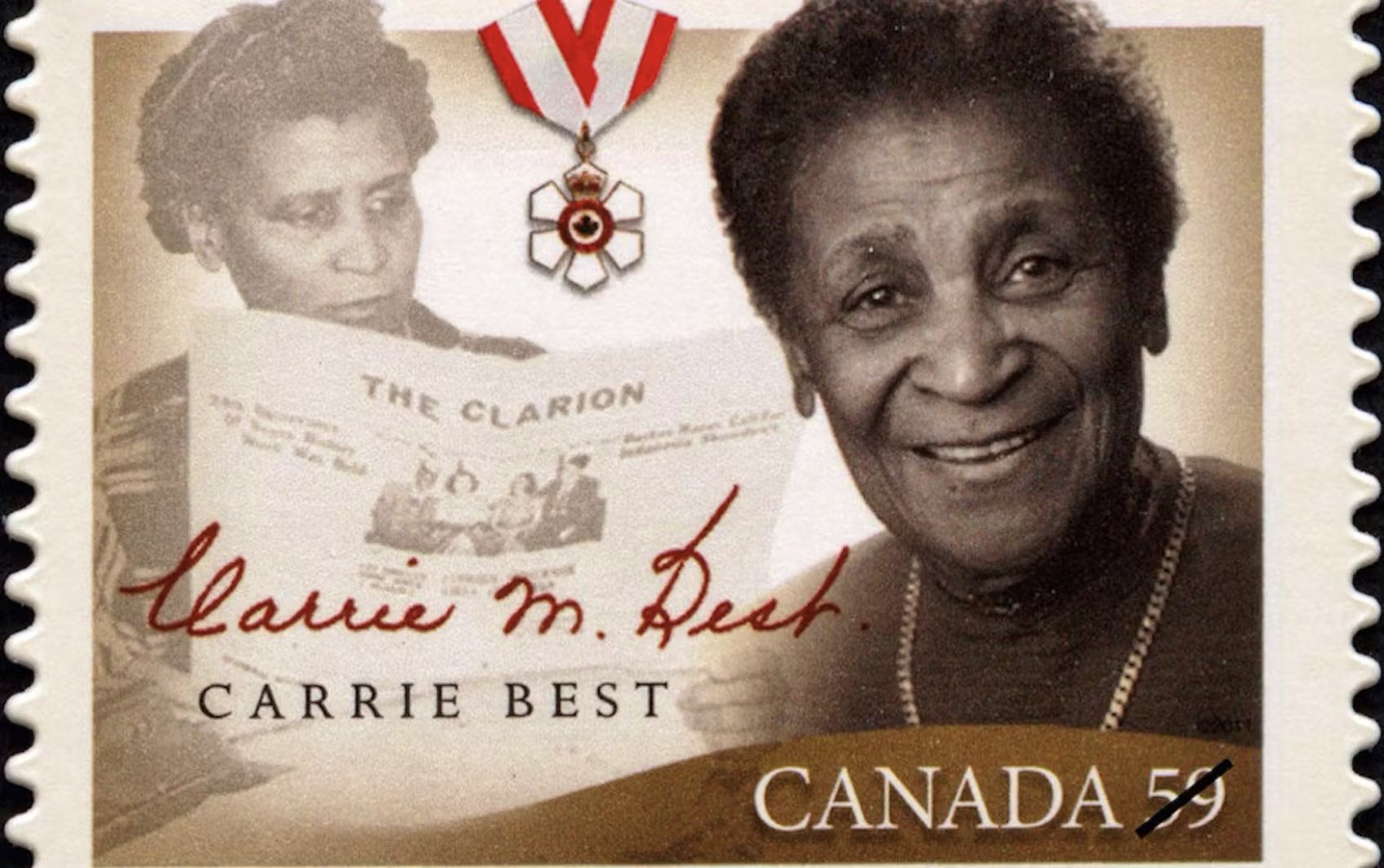Carrie Best
Voice of justice in Black Nova Scotia
Carrie Best (1903 – 2001) was a trailblazer in the fight for civil rights – a journalist, activist, and publisher whose life’s work challenged racism head-on in Nova Scotia and beyond. She became the first Black woman in Atlantic Canada to found and publish a newspaper, and one of the country’s most consistent and courageous voices for racial equality.
Born in New Glasgow, Nova Scotia, Carrie Best (1903-2001) was brought up to believe in the equality of all peoples, Carrie spent her entire life fighting racial discrimination. As a young girl, she and her family, experienced discrimination firsthand when, at the end of the First World War, a racial riot broke out in New Glasgow and her own mother was forced to run a gauntlet of white men armed with clubs to rescue her son who was trapped in a local business.
While most Canadians are now familiar with Viola Desmond and her fight for equality, Carrie Best was actually the first to challenge the status quo in the same manner. In 1942, Carrie Best refused to sit in the black-only section of the local theatre. This act of disobedience was deliberate, she wanted to be arrested and tried so that the whole issue of racial segregation could be challenged in open court. Arrested and brought to trial, she lost the case and was made to pay all the legal fees incurred by the Theatre owner, but this setback did not deter her.
After her legal defeat, Carrie embarked upon a career as a journalist in 1946 when she published the first edition of The Clarion, a single 8” x 10” sheet which began as a church bulletin and later grew into a full-scale newspaper. Carrie Best became the first black woman in Nova Scotia to own and publish a newspaper. She used the newspaper to champion Viola Desmond, another black woman from New Glasgow, who was arrested and fined for sitting in the white-only section of the same theatre where Carrie Best had stood her ground. The Clarion urged readers to make donations to a court fund to fight the case. Carrie closely followed the case and reported details in The Clarion.
Carrie proved to be a good journalist and the newspaper flourished. In 1956, she changed the name to The Negro Citizen when she began national circulation. She went on to produce radio shows and she also wrote columns for other newspapers.
In 1970 she was awarded the Lloyd McInnes Memorial Award for her contributions to the betterment of society. In 1974, she was made a member of the Order of Canada and was promoted to Officer in 1977. St. Francis Xavier University granted her an Honourary Doctorate in 1975 and King’s College in 1992.
Best died at the age of 98 in her hometown of New Glasgow. A postage stamp in her honour was released in 2011.
The Clarion, first published in 1946. This issue features a story about Viola Desmond and her legal battle.
Postage stamp issued in 2011.
